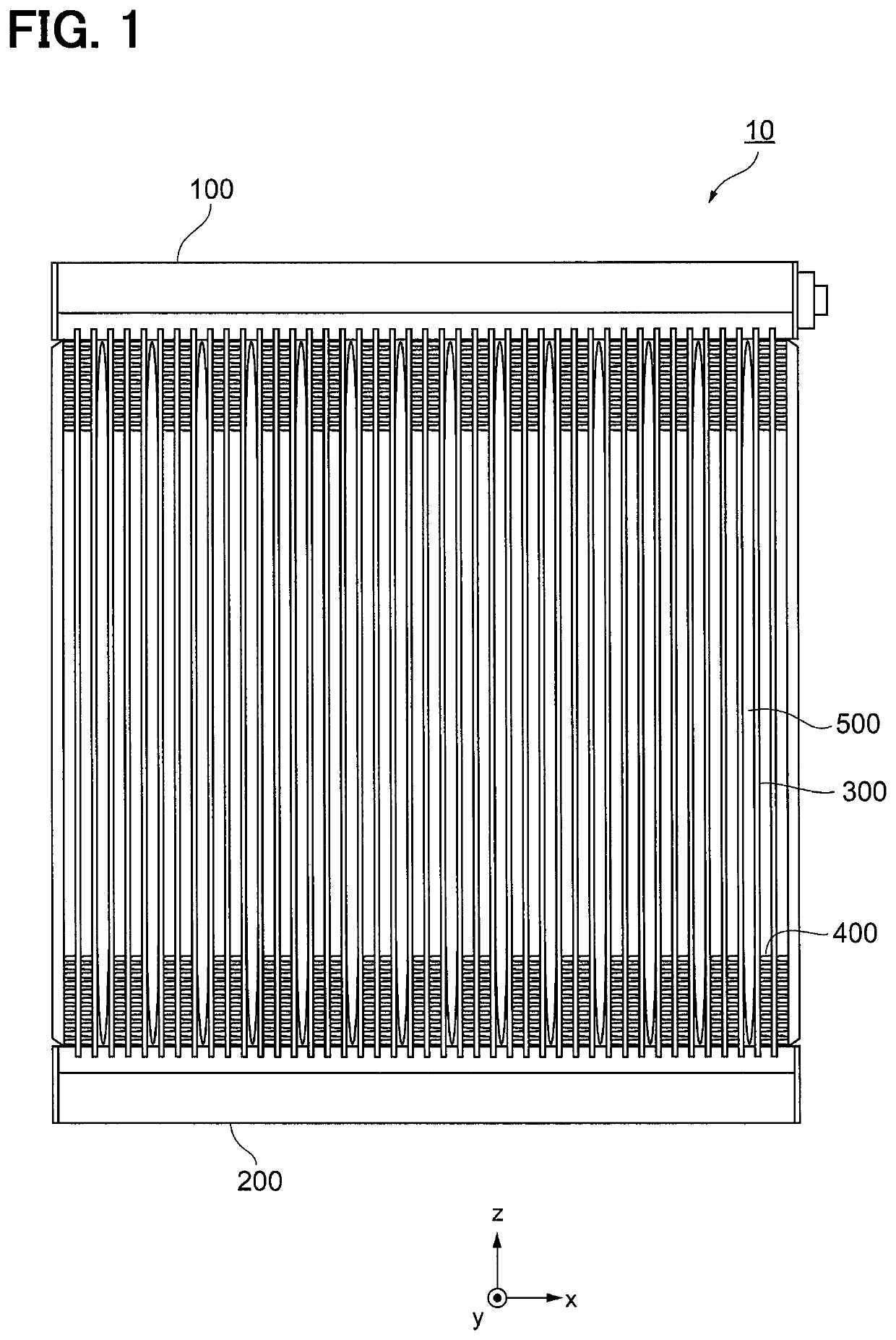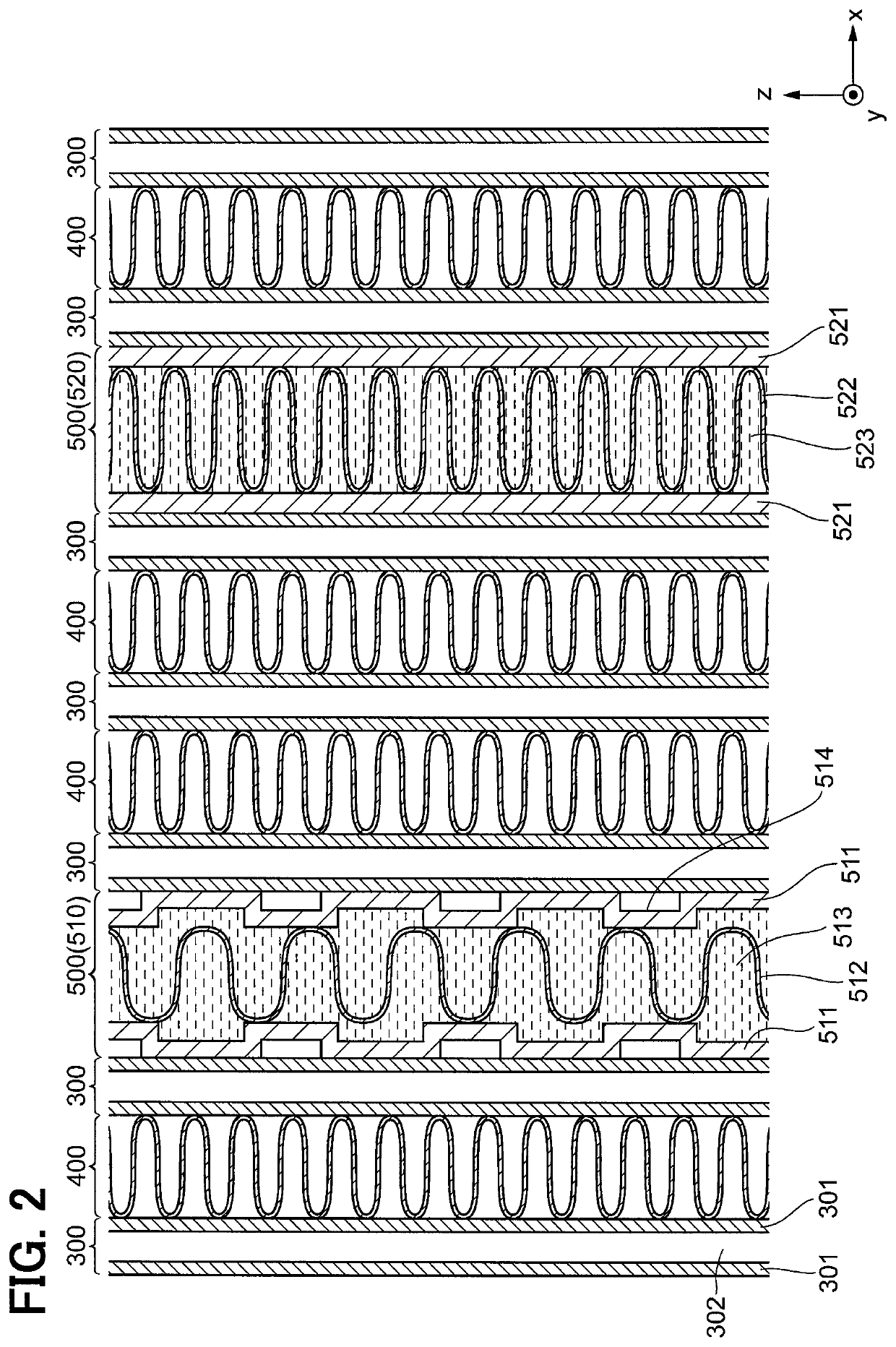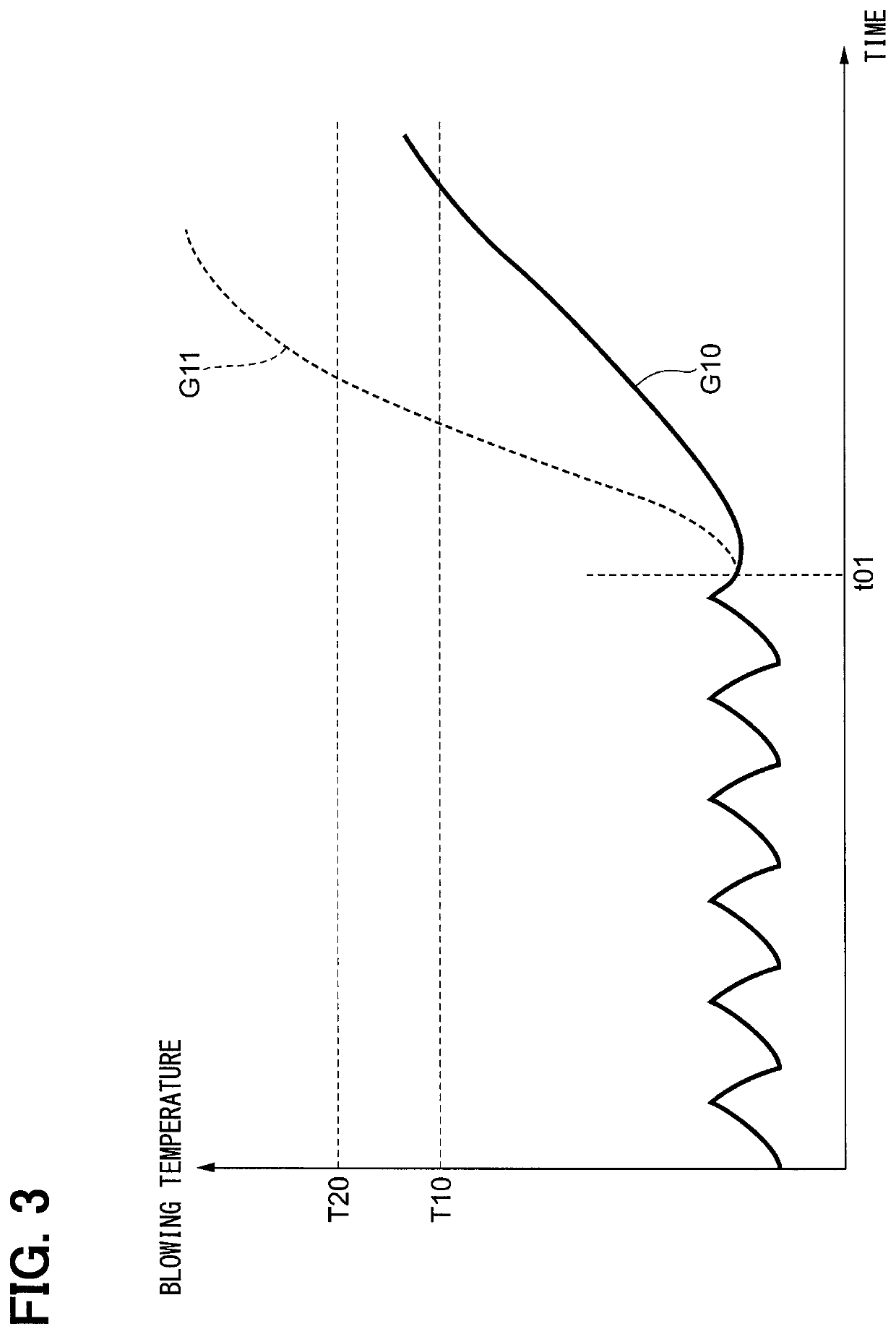Evaporator
a technology of evaporator and evaporator chamber, which is applied in the direction of indirect heat exchangers, refrigeration components, lighting and heating apparatus, etc., can solve the problems of large amount of heat taken from cold storage materials, insufficient cold storage in cold storage mechanisms, and inability to control the temperature rise of air blown into the vehicle interior from air conditioning apparatuses. to prevent the adhesion of frost and reduce the energy needed
- Summary
- Abstract
- Description
- Claims
- Application Information
AI Technical Summary
Benefits of technology
Problems solved by technology
Method used
Image
Examples
first embodiment
[0055]A first embodiment of the present disclosure will be described with reference to FIGS. 1 to 5. An evaporator 10 shown in FIG. 1 is an evaporator (evaporator) forming a part of a refrigeration cycle (not shown) configured as a vehicle air conditioning system. Refrigerant is sent to the evaporator 10 by a compressor not shown disposed in a part of the refrigeration cycle. The compressor operates by a driving force of an internal combustion engine installed in a vehicle. The evaporator 10 performs heat exchange between a refrigerant and air while internally evaporating a fed refrigerant, to thereby cool the air.
[0056]A configuration of the evaporator 10 will be described with reference to FIG. 1. The evaporator 10 includes an upper tank 100, a lower tank 200, tubes 300, corrugated fins 400, and cold storage mechanisms 500.
[0057]The upper tank 100 is a container for temporarily storing the refrigerant supplied to the evaporator 10 and supplying the refrigerant to the tubes 300. Th...
second embodiment
[0100]Hereinafter, a second embodiment of the present disclosure will be described with reference to FIG. 6. The second embodiment is different in only a configuration of a second cold storage mechanism 520 from the first embodiment, and the other configurations are identical with those in the first embodiment. FIG. 6 shows an internal structure of a cold storage material and the like.
[0101]In the present embodiment, a shape of a cold storage container 521 is the same as the shape of a cold storage container 511. In the cold storage container 521, multiple concave portions 524 retreating inward are provided. Portions of an outer surface of the cold storage container 521 other than the concave portions 524 abut against tubes 300.
[0102]In the inside of the cold storage container 521, the apexes of wavy inner fin 522 abut against and brazed to the inner wall surface of the cold storage container 521, more specifically, the inner wall surface of the concave portions 524. A pitch of the ...
third embodiment
[0109]Hereinafter, a third embodiment of the present disclosure will be described with reference to FIG. 9. Similarly, the third embodiment is different in only a configuration of a second cold storage mechanism 520 from the first embodiment, and the other configurations are identical with those in the first embodiment. FIG. 9 shows an internal structure of a cold storage material and the like.
[0110]In the present embodiment, a pitch of an inner fin 522 in the second cold storage mechanism 520 is the same as the pitch of an inner fin 512 in a first cold storage mechanism 510. In other words, the second cold storage mechanism 520 is different from the first cold storage mechanism 510 only in a contact area between a cold storage container 521 and a tube 300. Even in such a configuration, the same advantages as those in the first embodiment are obtained.
[0111]As a specific configuration for setting the contact area between the cold storage container 521 and the tube 300 to be larger t...
PUM
 Login to View More
Login to View More Abstract
Description
Claims
Application Information
 Login to View More
Login to View More - R&D
- Intellectual Property
- Life Sciences
- Materials
- Tech Scout
- Unparalleled Data Quality
- Higher Quality Content
- 60% Fewer Hallucinations
Browse by: Latest US Patents, China's latest patents, Technical Efficacy Thesaurus, Application Domain, Technology Topic, Popular Technical Reports.
© 2025 PatSnap. All rights reserved.Legal|Privacy policy|Modern Slavery Act Transparency Statement|Sitemap|About US| Contact US: help@patsnap.com



